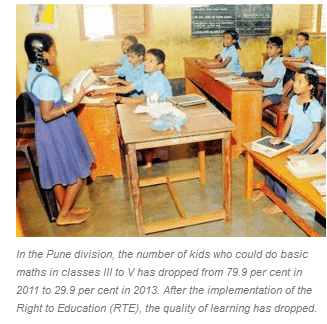Education policy: Where is it in the elections 2014 debate?
Economic Times – Feb 01, 2014
The national narrative for the 2014 elections has been set in motion. In a rapidly changing electorate that is seeking growth and prosperity, it is surprising to see a lack of serious discussion and debate on the educational policy framework for 2014.
Considering the findings of the Annual Status of Education Report (Aser) for 2013, published by Pratham, shouldn’t education become a point of election discussion and debate? The Aser report has many observations that should evoke serious..
This framework could be a defining factor in changing the shape of primary education in India. The scenario in higher education is not rosy either. In terms of research productivity, India has 7.8 scientists per 1,000 population compared to 180.7 in Canada, 53.1 in South Korea and 21.2 in the US. Harvard University’s endowment stands at $32 billion whereas the total extramural grants provided to Indian universities put together is about Rs 12 billion. Despite these economic and policy disparities, our mission to Mars was a significant achievement with the investment as low as Rs 450 crore — a figure that is a tenth of what Nasa had spent on its own endeavour.
There should be a three-pronged plan. One, there has to be a consensus on revising the RTE Act. The evolution of RTE should have a roadmap that lays greater emphasis on quality at the ground level with achievable goals. Second, there has to be a vision to invest in higher education with emphasis on research and development. The investment in higher education should be more than 2 per cent of GDP in five years.
Important Bills such as The Protection and Utilisation of Public-Funded Intellectual Property Bill and The Higher Education and Research Bill are pending in Parliament. These Bills need to be cleared in order to provide better financial incentives for talented scientists. Finally, there has to be a renewed commitment to greater publicprivate partnerships in the higher and lower education systems.
There has to be a goal of ensuring that there at least 100 public-private partnerships across the country, especially in primary education. There has to be a monitoring cell to ensure greater accountability at the teaching level. In the rancour of modern-day politics, there has to be a more robust debate on policy parameters that contenders for the top job in the country should articulate. We can enhance the quality of education through a policy-driven approach at the top of the political spectrum. India is going to be the youngest country by 2025. This is the best opportunity for our netas to put this on top of their agenda.
This article can also be viewed at http://economictimes.indiatimes.com/opinion/comments-analysis/education-policy-where-is-it-in-the-elections-2014-debate/articleshow/29686729.cms

